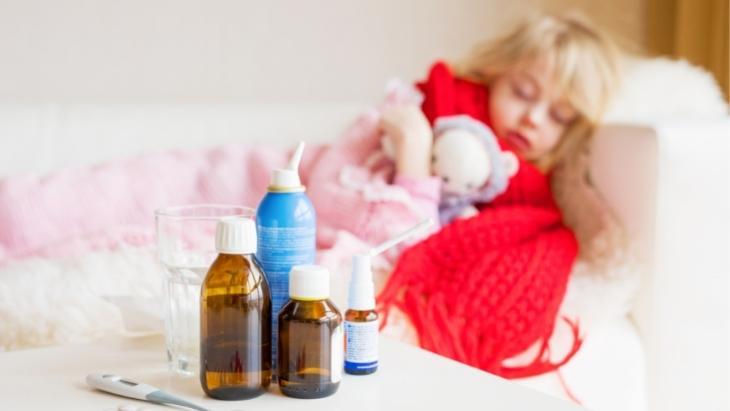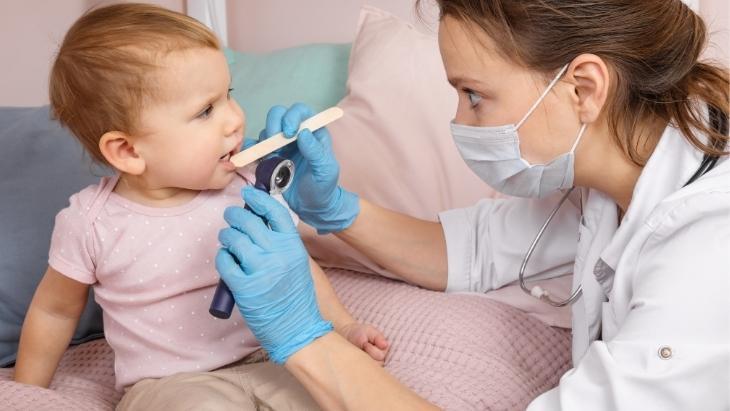
Colds and Flus: How to Survive the First Year of Daycare
Ah, the first year of daycare… not so much about bringing home paintings and cardboard hats as it is about bringing home new bugs, am I right parents?
It’s bad enough that we feel guilty leaving them as you rush off to work, especially with all the tears at drop-off, but when they come home with a runny nose it's like a jagged knife through your heart!
Colds and Flu in Kids: How to Survive the First Year of Daycare
Luckily, you can take some simple measures to help reduce the likelihood of illness before it strikes – and effectively treat the symptoms of these pesky bugs if they do take hold.
RELATED:
24-Hour Chemists in Sydney
When Your Child is Always Sick

Parents who have been through it will tell you to relax, “it’s good for him to build his immune system,” they’ll say. “Get all the bugs out of the way in the first year, and he’ll be stronger for it.” That’s easy to say in hindsight but when you’re living through green snot, temperatures and tears (and having to use up all your sick leave at work) it can seem like a year of pain. Not to mention getting these bugs passed on to you too!
But these parents are right; getting sick at daycare is a rite of passage for us working mums and dads. Children in group care have increased exposure to other children, and play with germ-sharing toys, and their little bodies haven’t met all the germs yet, so they are more likely to react when exposed to a virus. Unless you are willing to hire a nanny or stay at home yourself you can’t completely avoid these illnesses, you just have to suck it up (quite literally) for the first little while.
How to Prevent Colds and Flu
It’s unlikely that you can entirely prevent your child from getting sick – children are inevitably going to get coughs, colds and flu.
The good news is that colds rarely cause serious harm; they just make your child feel unwell. They will usually get better in 7-10 days – if not earlier, although a cough can last up to 3 weeks.
Here are some things to help relieve your child’s symptoms:
- Keeping your child at home to rest can help fight the virus and help your child feel better.
- Encourage your child to drink their usual amount of fluids.
- Avoid exposure to cigarette smoke.
- For sore throats, get your child to gargle warm salty water, and suck on ice or a throat lozenge. Pain relief medicines like paracetamol and ibuprofen can help ease the pain of a sore throat. Aspirin is not suitable for children.
Preventing the spread of germs plays a huge part in avoiding the spread of illness. Your childcare provider should have strict policies on how they encourage good hygiene in the centre. However, good hygiene starts in the home, and it is worth teaching your child good habits as early as possible, such as:
- Covering their mouths when sneezing or coughing.
- Keeping their hands away from their eyes, nose and mouth.
- Using tissues to blow their nose, and throwing them in the bin after use.
- Washing their hands with soap and running water.
Does My Child Need Antibiotics?

Although it might be tempting to ask your doctor for antibiotics when your child is sick, it is actually a misconception that they will speed up recovery or cure cold and flu viruses.
Using antibiotics to treat your child’s cold and flu symptoms contributes to antibiotic resistance. Because antibiotics only work on infections caused by bacteria, when they are used incorrectly, we allow the bacteria to become resistant – in your child and the wider community. In the long run, they will no longer work when we need them to.
However, it is important to talk to your doctor if your child’s symptoms are not improving.
Ear Infections in Kids
Ear infections are not uncommon during his first year of daycare, and it is difficult to know whether antibiotics will help - Dr Google had conflicting answers!
The Royal Australian College of General Practitioners recommends that antibiotics should not be routinely used in children with ear infections between two and 12 years of age as most ear infections will clear up within a couple of days.
However, Aboriginal and Torres Strait Islander children are at higher risk of complications and should be treated early, so make sure you check in with your health professional.
If symptoms are not improving then it is important to seek medical advice and take your child in for a check-up. In this instance, your doctor might prescribe a short course of antibiotics.
The Silver Lining
The good news is that once you get past this challenging first year (which is more painful for parents, usually!) your child’s immune system has been greatly boosted. A study by the University of Montreal found that toddlers in group child care get sick more often than toddlers who stay at home, but found those same kids get sick less often than their peers during the primary school years. It might seem like a lifetime, but it’s not forever.
Good luck!
Things to do You're When Stuck at Home
The Best Kids' Movies on Netflix
Indoor Activities for Kids: 20 Boredom Busters to Keep up Your Sleeve
Dessert Delivery Sydney: The Best Straight to Your Door
Have you signed up for our newsletter? Join ellaslist to get the best family and kid-friendly events, venues, classes and things to do NEAR YOU!
Reviews



 Pick a Date
Pick a Date
